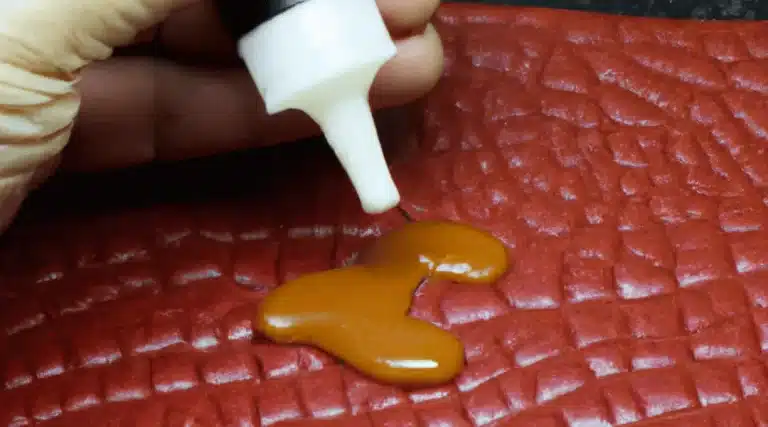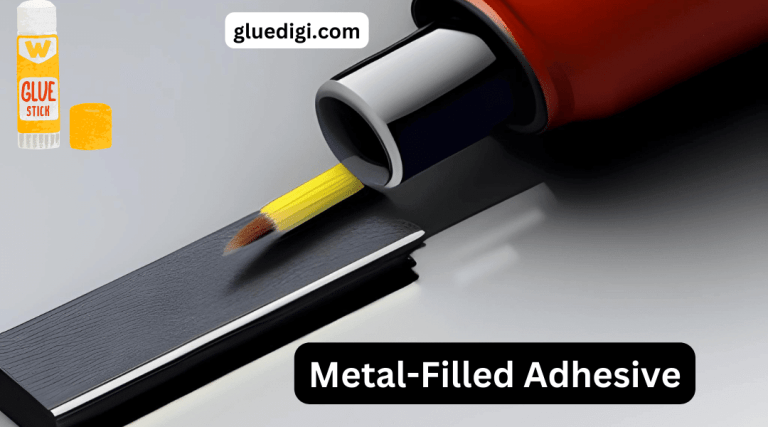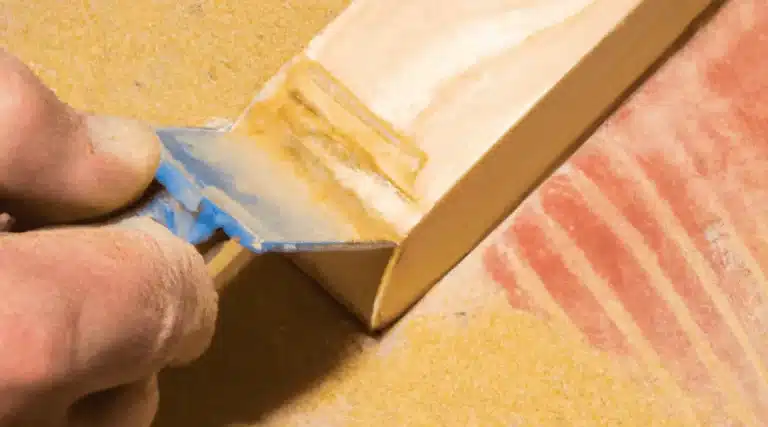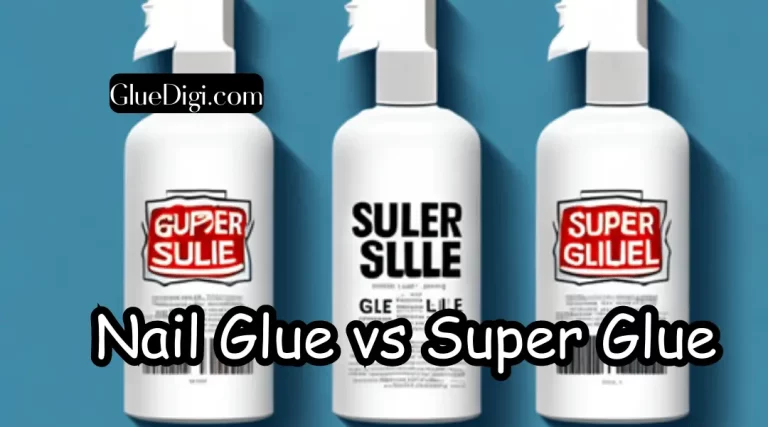Super glue, also known as cyanoacrylate adhesive, is a fast-drying and strong adhesive that is used for bonding different materials. It is a type of chemical bonding that occurs when the adhesive reacts with moisture in the air to form a strong bond. Super glue comes in different variations, including gel, liquid, and spray. It is commonly used for bonding metals, plastics, ceramics, and wood. In this blogpost we will know about Does Super Glue Work on Metal
Super glue is easy to use, and it requires no special equipment or tools. It is also widely available and affordable, making it a popular choice for DIY projects and repairs.
Let’s dive into this peculiar topic and uncover the taste, health risks, and even unique uses of glue beyond its intended purpose.
However, not all super glue products are suitable for bonding metals. The type of metal and the composition of the super glue can affect the strength and durability of the bond. In the following sections, we will explore whether super glue works on metal and what factors can impact its effectiveness.
Does Super Glue Work on All Types of Metal?
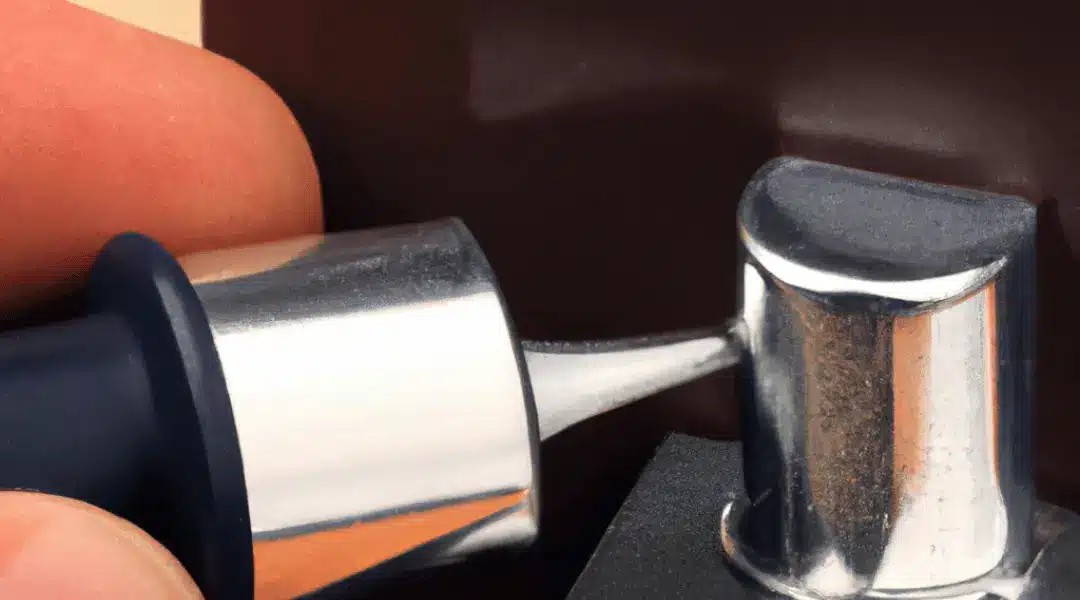
Super glue can bond different types of metal, including steel, aluminum, copper, brass, and titanium. However, the effectiveness of the bond depends on several factors, such as the surface texture, cleanliness, and composition of the metal.
Smooth and polished metal surfaces may not provide enough roughness for the adhesive to bond effectively. In contrast, rough and porous surfaces can increase the surface area for the adhesive to adhere to, resulting in a stronger bond. Therefore, it is recommended to sand or roughen the metal surface before applying the super glue.
The composition of the metal can also affect the bonding process. Some metals, such as stainless steel and aluminum, have a protective oxide layer that can prevent the adhesive from bonding effectively. In such cases, it may be necessary to use a primer or an activator to remove the oxide layer and promote adhesion.
What Type of Super Glue is Best for Metal?
Not all super glue products are created equal, and some are more suitable for bonding metals than others. The best type of super glue for metal should have the following characteristics:
• High bonding strength:
The adhesive should be strong enough to resist shear, tension, and vibration.
• Fast-drying:
The glue should dry quickly to avoid prolonged exposure to moisture and air.
• Temperature-resistant
The adhesive should be able to withstand high and low temperatures without losing its strength.
• Chemical-resistant:
The glue should be resistant to chemicals, oils, and solvents that may be present in the metal surface or the environment.
• Easy to use:
The glue should be easy to apply and should not require special equipment or tools.
Based on these criteria, some of the best super glue products for metal include Loctite Ultra Gel Control, Gorilla Super Glue Gel, and Krazy Glue Maximum Bond.
How to Use Super Glue on Metal?
Using super glue on metal is a simple process that requires some preparation and attention to detail. Here are the steps to follow:
- Clean the metal surface thoroughly with a degreaser or rubbing alcohol to remove any dirt, oil, or debris that may interfere with the bonding process.
- Apply a small amount of super glue to one of the metal surfaces. Avoid applying too much glue, as it can result in a weak bond or excess glue that may drip or spread to unwanted areas.
- Press the two metal surfaces together firmly and hold them in place for at least 30 seconds. Avoid moving or adjusting the metal pieces during this time, as it can disrupt the bonding process.
- Wait for the glue to dry completely, which usually takes a few minutes. Avoid exposing the glued area to moisture or air during this time, as it can weaken the bond.
Wait for the glue to dry completely, which usually takes a few minutes. Avoid exposing the glued area to moisture or air during this time, as it can weaken the bond.
How Long Do Super Glue Fumes Last?
How Strong is the Bonding of Super Glue on Metal?
The strength of the bonding of super glue on metal depends on several factors, such as the type of metal, the surface preparation, and the quality of the adhesive. In general, super glue can create a strong and durable bond on metal surfaces, especially when the surfaces are roughened and the glue is applied correctly.
According to laboratory tests, the super glue on metal can range from 1,000 to 4,000 pounds per square inch (psi), depending on the type of metal and the adhesive used. This strength is sufficient for most applications, including bonding small metal parts, repairing broken metal objects, and attaching metal to other materials.
What Are the Advantages of Using Super Glue on Metal?
Super glue offers several advantages when used on metal surfaces, such as:
• Fast and easy bonding:
Super glue dries quickly and forms a strong bond in seconds, reducing the time and effort required for repairs and projects.
• High strength:
Super glue can create a strong and durable bond that can withstand stress, movement, and vibration.
• Versatility:
Super glue can bond different types of metal, as well as other materials such as plastic, wood, and ceramics.
• Cost-effective:
Super glue is affordable and widely available, making it a cost-effective solution for DIY projects and repairs.
Learn How to Make Super Glue Dry Faster from Experts
What Are the Disadvantages of Using Super Glue on Metal?
Despite its many advantages, super glue may not be suitable for all metal bonding applications. Some of the disadvantages of using super glue on metal are:
• Limited gap-filling ability:
Super glue works best on smooth and flat surfaces, and may not be effective for bonding irregular or uneven surfaces.
Nail Glue vs Super Glue – Get Expert’s Idea
• Poor resistance to heat and chemicals:
Super glue may lose its strength and durability when exposed to high temperatures, chemicals, or solvents, which can weaken the bond and cause it to break down.
• Difficult to remove:
Super glue creates a strong and permanent bond that can be difficult to remove or adjust once it has dried. Removing super glue from metal surfaces may require using solvents or mechanical methods, which can damage the metal or the surrounding surfaces.
What Are the Safety Precautions When Using Super Glue on Metal?
Super glue is a safe and easy-to-use adhesive, but it can pose some risks if not handled properly. Here are some safety precautions to follow when using super glue on metal:
Why Super Glue Is Age Restricted?
• Use in a well-ventilated area:
Super glue can release fumes that may irritate the eyes, and throat. Use it in a well-ventilated area or wear a mask to avoid inhaling the fumes.
• Use protective gear:
Wear gloves, eye protection, and long using super glue to avoid skin contact and eye irritation.
• Avoid ingestion:
Super glue is toxic and should not be ingested. Keep it away from children and pets.
• Store properly:
Keep super glue in a cool, dry, and dark place away from heat, moisture, and sunlight.
On What Temperature Super Glue Melt
What Are Some Tips for Using Super Glue on Metal?
Here are some tips for using super glue on metal surfaces:
- Choose the right type of super glue for the metal and the application.
- Clean and roughen the metal surface before applying the glue.
- Apply a small amount of glue to one surface, and avoid applying too much or too little.
- Press the metal surfaces together firmly and hold them in place for at least 30 seconds.
- Wait for the glue to dry completely before sanding or filing any excess glue or rough edges.
Conclusion
Super glue can be an effective and convenient solution for bonding metal surfaces. However, its effectiveness depends on several factors, such as the type of metal, the surface preparation, and the quality of the adhesive. By following the tips and precautions outlined in this guide, you can ensure a strong and durable bond that can withstand stress, movement, and vibration. In case of any doubt, consult with a glue expert for guidance and advice.

